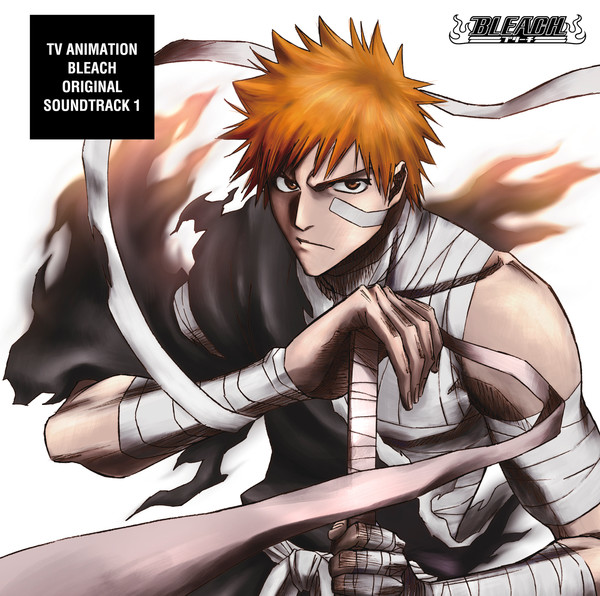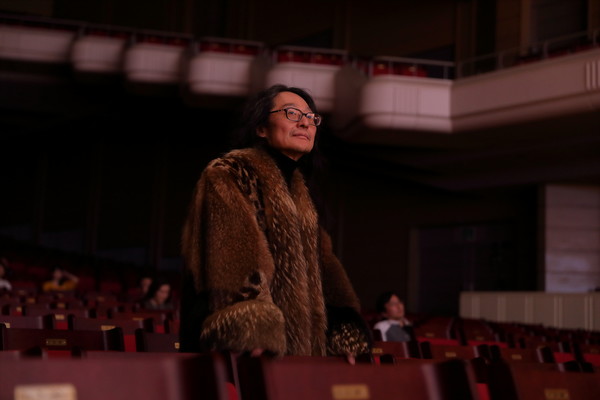Interview: Music Composer Shiro SAGISU on Returning to BLEACH
by Kim Morrissy,Bleach is back, and it's better than ever. To mark the release of the final arch of the anime series Bleach: Thousand-Year Blood War, Milan Records has released eight soundtracks from the anime series and films on digital platforms. We also had the opportunity to speak with music composer Shiro SAGISU about his work on the entire series thus far, as well as a little on what to expect from the final arch of the anime series Bleach: Thousand-Year Blood War.

Looking back on your hundreds of tracks you created for BLEACH, which songs stand out to you most? Please tell us the reason, too.
You picked a tough question to start with. I've written so many songs but each one is like my child, so it's very hard to choose what's best. They're all equally memorable and important. But if I absolutely had to choose one, I would definitely pick “Number One” because it became the face of BLEACH. Originally, I wrote it to be Ichigo Kurosaki's theme song, but for the fans it became a victory fanfare, so it's very memorable.
Have you read the original manga? What's your impression of it?
The first time I read the manga, I was blown away by how stylish it was, and how different it was from any other Japanese manga I had read at the time. Every panel was like a sophisticated illustration; I felt like I could put any one of them in a frame and it would be an art piece.
In my personal opinion, BLEACH combines urban horror with hot-blooded battles. These are two very different genres. Musically, how did you try to make these two genres fit together?
This is a very good question. The answer is actually quite easy, though. This idea of mixing urban horror with hot-blooded battles actually represented my music very well already. It was a very unique mix, but because it was naturally a part of me, the main thing I had to do was express myself through the music.
How did you develop that kind of style in the first place?
I have worked with many different artists and developed an eclectic approach to the music I write. I think that's where my ability to mix different genres came from. That really helped with film score writing as well. I also grew up with a manga artist father who owned a special effects/animation studio. Urban horror and hot-blooded battles were all around me in that environment, so it all came naturally to me.
The art in the original manga is heavily influenced by contemporary pop and rock music. How much was Tite Kubo's musical taste factor on your work on the soundtrack?
It was a big influence. As I mentioned before, each panel was sophisticated and shows great taste. It was very easy to look at a panel and sense Kubo's contemporary pop and rock influences
Are there any particular anecdotes you can recall from the time you created the original soundtrack?
I don't know if it's a very funny anecdote or anything, but I do have a behind-the-scenes story. A recognizable part of my music-writing is the use of big orchestras and grandiose sounds. But when I first wrote the soundtrack for BLEACH 18 years ago, I actually put that all aside because I wanted to represent the contemporary pop and rock influences mentioned earlier. I used simpler, smaller sounds to bring that essence out.
Were there any particular challenges from using smaller sounds?
There weren't really any hardships, but at the very beginning of the soundtrack I tried to use more samplings, like hip-hop, in the songs I wrote.
Because BLEACH is such a long-running series, do you feel as if the tone of your work changed over time? Or did you consciously try to keep things consistent?
It always has been changing. I think that change is a major part of BLEACH's musical personality.
One thing I would like to add: I mentioned before that I used smaller sounds for the soundtrack at first, but I did end up using a bigger orchestra pretty soon afterward because BLEACH was such a long-running series. I wanted to continue challenging myself and trying new things with the music.
Which track do you typically start with when creating? Is there a specific order you tend to follow? For example, starting with the main theme track or battle songs…
I'm very animalistic in the sense that I write whatever comes to my head. I constantly have music coming out of my head. Whenever I go on a daily walk, a song just pops up in my head and I write that. So there's no set order.
I also want to add that because BLEACH was such a long-running series, I had to constantly write songs for both the TV series and the movies for years. I was always writing songs. But I actually think that worked out for the best because composing became like a battle for me. Writing songs that matched battle scenes and such was very easy.
You're also working on the soundtrack for the final arc of the anime series, Bleach: Thousand-Year Blood War. How does it feel returning to this anime after so long, and has anything changed with your musical approach in the meantime?
Because I had worked on BLEACH for such a long time, it was very exciting for me to be able to go back to the series and work on it again. Like I mentioned before, when I'm in an excited state, it's a lot easier to make music for BLEACH, and it often comes out better for it. I feel like I'm in a very good place right now. Even though there was a big break between the last series and this one, it didn't really matter to me. I was able to switch my Bleach brain on immediately and write music for it again. It felt very natural.
You're also creating a new version of the iconic theme song “Number One” titled “Number One - Bankai”. What new aspects do you hope listeners will pay attention to?
Like I mentioned earlier, I think the best part about the music in BLEACH is that it's constantly changing. “Number One” is also changing. I am working on “Number One - Bankai”, but I also have ideas for reinterpreting it again because I want to make sure that listeners, or rather watchers, are hearing the best version when it comes.
Do you have any comments for your overseas fans?
Everyone is connected nowadays through social media or the internet. Nobody imagined that it would be like this 20-30 years ago. Even though the internet did exist back then, now everything can be released to the world instantaneously. So whether it's a thought you have at the moment or a sound you created that you want everyone to listen to, you can transmit it in real time.
The connection between me and my fans is much closer and stronger now. It's very important to me and I like to stay in touch. I do have a Twitter, so I would love it if everyone follows it.
Also, unlike a lot of other Japanese composers, I am always traveling around the world to places like Europe or America. Whenever I write my name at a hotel, restaurant, post office, or wherever, people often recognize me and talk to me. I've already had people ask me what's going to happen in the next BLEACH series. If you see me around, feel free to have a chat.
 ABOUT Shiro SAGISU
ABOUT Shiro SAGISU
Born in Tokyo in 1957, Shiro SAGISU is a composer, arranger, and music producer who has been at the forefront of the music industry for 44 years since his participation in a Jazz fusion band T-SQUARE's major label debut in 1978. He has worked on thousands of songs and artists in a wide range of genres, pop music, jazz, gospel, R&B, rock, and classical crossover, as well as film and TV scores. He has always produced a huge number of hits and has recently worked with artists such as MISIA, Ken Hirai, SMAP, Taro Hakase, JUJU, Yoko Takahashi, Mika Nakashima, and many others. He has been active in Europe since 1990, running a club in Paris and working with artists from the UK and France. Since then, internationally, based in London, Paris, and Tokyo. The collaboration with film director Hideaki Anno has lasted for more than 33 years and has enthusiastic fans all over the world. From his first major album EYES (1979) to his SHIRO'S SONGBOOK series (1999-2022), he has constantly released his own works, including four-disc sets, two-disc sets, and DVD. In addition, following in the footsteps of his father, Sōji Ushio (1921-2004), he leads P-productions, Manga, Animation, and Kaiju studios, and runs the company. Recent works include the orchestration of the Japanese national anthem "Kimigayo" for the opening ceremony of the 2020 Tokyo Olympics, the fanfare and marches at the JRA racecourse, EVANGELION series complete works (TV and film), MUSA (film), BLEACH series complete works (TV and film), Berserk series complete works (TV and film), ATTACK ON TITAN (two films), Shin Godzilla (film), Shin Ultraman (film), Genshin Impact (game), etc.
discuss this in the forum (1 post) |
this article has been modified since it was originally posted; see change history